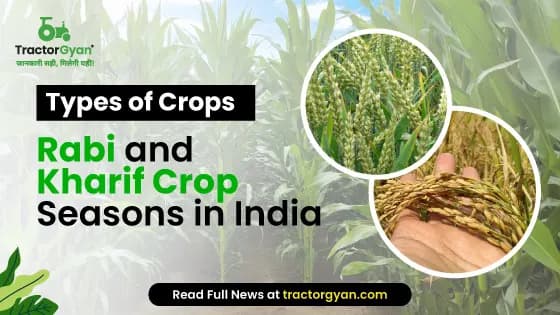Know why earthworms are called farmers friends | Tractorgyan
Table of Content
Earthworms are known as farmers' friends since they enhance the health of the soil and plants. In the soil, earthworms are typically present. An earthworm's body is shaped like a tube, and the length is determined by the digestive system.
Through the skin, they breathe. They consume organic material such as living bacteria, fungus, protozoa, and other creatures as well as plant materials. Due to their ability to break down enormous amounts of organic materials into humus, earthworms improve soil fertility.
The job of pumping air into and out of the soil is done by earthworms. Earthworms open the soil's air and water passages. They alter the essential organic component, which strengthens the soil.
Earthworms are animals that have a tube silky smooth body-like structure. Earthworms are found mostly in and beneath the soil their activities include burrowing and feeding which further helps in improving the overall quality of soil for crop production.
The most valuable natural resource is soil. Our relationship with the soil is based on the general cultivation of the soil. In human history and the development of civilizations to maintain human life in the historically, people relied on hunting and food gathering.
Earthworms are among the most common important soil creatures: they possess the possibility of preserving soil fertility and hence are crucial to sustainability.
Additionally, they are recognized as farmers a good friend, ecologists, biologists indicators, the earth's intestines, and a field ploughman. the earthworm’s sluggish development and hermaphrodites, except living in the leaf litter.
Role of earthworms in Agriculture

The pH, temperature, salts, aeration, texture, and accessibility of food are among the physical and chemical factors that affect the earthworm population. There are three basic types of earthworms: those that live in soil litter and eat organic stuff that is degrading in leaf litter. Worms that live in the topsoil or subsoil and dig horizontal caves to feed are classified in the second group. Worms that build long, deep vertical burrows out of plant material fall into the third group. They use these burrows to travel to the surface.
By increasing the total number of new pores that are produced, earthworms have a significant or vital role in altering the physical composition of soils. This enhances the soil's tilth, infiltration, aeration, and drainage capacity. The binding substances that improve the soil's porosity are produced by earthworms.
Earthworms also contribute to the preservation of the soil's physical and chemical qualities by transforming organic waste and biodegradable materials into nutrient-rich items that they release from their burrows to deposit feces.
Why are earthworms called the friends of farmers?
1. Earthworms help in the recycling of nutrients
Worms are tiny, ravenous animals that may consume their body weight in food each day. Their diet contains, among other things: dead vegetation, discarded leaves, bacteria, fungus, and even dead creatures.
Worms break down and recycle this organic waste in the soil as they feed, naturally fertilizing the ground, and ensuring that it is rich in essential nutrients. Worm castings, or worm poo, are the byproduct of this recycling process and are the small mounds you may occasionally notice on top of the soil.
In comparison to the original soil, their casts can have five times as much nitrogen, seven times as much phosphate, and one thousand times as many beneficial bacteria.
Organic matter is broken down by earthworms, fungi, and bacteria. The majority of people are familiar with earthworms and compost, but earthworms also recycle leaf litter under orchards and in other wooded regions, decompose animal and plant waste, and process 2 to 20 tonnes of organic matter per hectare annually in grazing soils.
2. Earthworms improve or nourish the fertility of the soil
Tunnels made by earthworms change the soil's physical composition. They allow the soil's pores, tiny openings, to expand. The burrowing of earthworms can result in increases in water penetration rates of up to 10 times the initial quantity when they are introduced to soils barren of them. This reaches the roots of plants and delivers water and soluble nutrients. Additionally, digging increases the penetration of plant roots into the soil, which is crucial for both plants and other soil-dwelling species.
The soil is blended by earthworms, which also add organic material in the ground. These mixtures enable the spread of organic matter throughout the soil, improve soil fertility, and make nutrients easily accessible to plants. By incorporating and tilling the soil, enhancing humus development, and increasing the amount of plant material available, earthworms improve soil structure nutrition. Harmful bacteria are found in the intestines of earthworms. Worms consume chemicals that decompose organic trash as well.
3. Earthworms provide food to the predators
Like all other organisms, earthworms are a component of food webs. Although native earthworms are a food source for endangered and endemic land snails, birds are a well-known predator.
4. Earthworms increase the pastoral or farming productivity
Pastoral productivity rises by 25–30% once lumbricid earthworms are developed. The comparable stock unit density per acre is 2.5. Earthworms remove the surface thatch material from the soil because it can prevent water from penetrating and can also cause soluble nutrients to flow off.
5. Earthworms help in the regulation or control of soil-borne pests
According to recent studies, earthworms help in growth and expansion of beneficial organisms in the soil. Earthworms disperse insect-killing bacteria and fungi in the soil, helping the environment to control pests and insects naturally. A fungus spore can regenerate even after passing through an earthworm's intestines and can continue to exist after the earthworm has died.
Earthworms are a farmer's best buddy forever. The rationale is that earthworms promote soil fertility by allowing more air and water to enter the soil, allowing for easier aeration, and enhancing drainage.
They mix organic matter with the soil below by bringing it down from the top of the ground, which increases the availability of nutrients. For their crops to flourish, farmers have traditionally sought out fertile soil. Earthworm does this without receiving payment. They genuinely are assisting farmers. They break apart the decaying organic materials.
Earthworms act as soil conditioners they nourish, condition, and replenish the soul by improving the chemical, biological and physical components of the soil.
About TractorGyan
Tractor Gyan is an expert-led platform that aims to empower Indian farmers by providing accurate and timely information, and technological advancement about tractors and farm equipment in India.
TractorGyan helps farmers with New Tractor information, Compare Tractors, Tractor prices, Buying and selling of second-hand tractors, Tractor Insurance, Tractor Finance, Tractor tyre, Tractor Implements, Tractor EMI calculator and more.
On our Platform, we have information about leading brands :
- In tractors like Captain, Preet, Farmtrac, Vst shakti
- In Tyres like BKT, Ceat, Apollo etc.
- In Tractor Finance like Mahindra Finance, TVS Finance, Etc.
- In Tractor Implements like Shaktiman, Fieldking, Landforce, KS agrotech, etc.
- In Tractor Insurance like Mahindra Finance, Axis Bank, ICICI Bank, etc.
TractorGyan is Helping India mechanise by delivering crucial information about tractor buying and guiding farmers at every step so that they get a tractor or farm equipment that empowers and equips them to produce quality yield.
FOLLOW US ON:- Facebook, Instagram, Linkedin
Category
Read More Blogs
Agriculture is the main activity carried out in the country. To meet the requirement or prerequisite of agriculture the main component that comes under the picture is the soil which makes soil preparation necessary.
Soil is the main component or ingredient in...
Advanced technology and feature-rich heavy-duty tractors are always in demand among farmers owing to medium to large-scale agriculture land as well as owners owing different industrial and commercial businesses. These heavy-duty and powerful tractors are above 75 HP or more. Many tractor...
In India, there is a steady increase in demand for 50 HP tractors. The reason is their unmatched performance in the fields and their multiple usability. Along with farming, these heavy-duty tractors can help farmers in jobs like transportation, hauling, and...
Write Your Comment About Know why earthworms are called farmers friends | Tractorgyan
.webp&w=1920&q=75)
Top searching blogs about Tractors and Agriculture
30 Jul 2025
30 Jul 2025
29 Jul 2025
08 Sep 2025
03 Jul 2025
30 Jul 2025
30 Jul 2025
30 Jul 2025
29 Jul 2025
30 Jul 2025
29 Sep 2025
31 Jul 2025
30 Jul 2025
31 Jul 2025















.webp&w=3840&q=75)










.webp&w=3840&q=75)
.webp&w=3840&q=75)



























